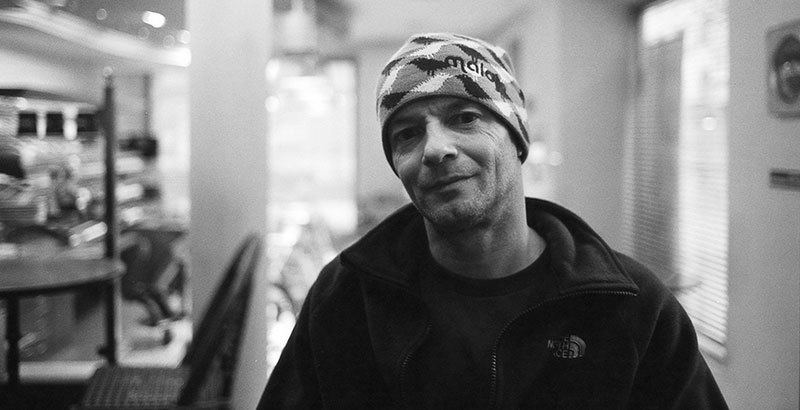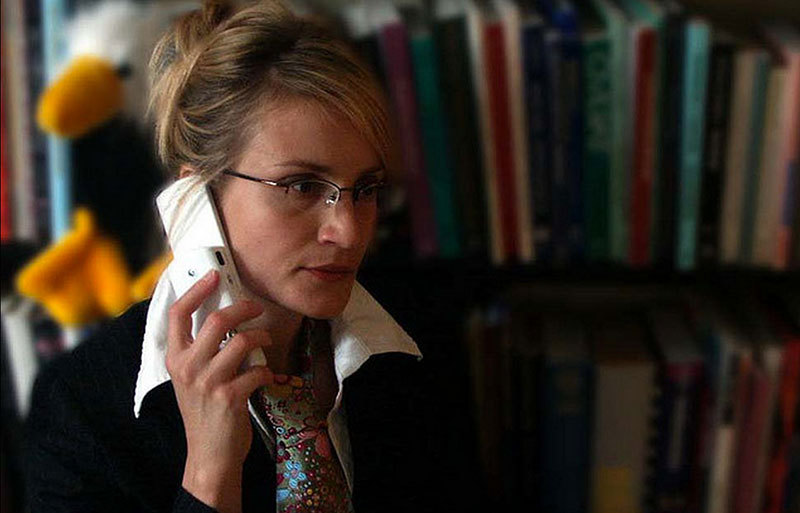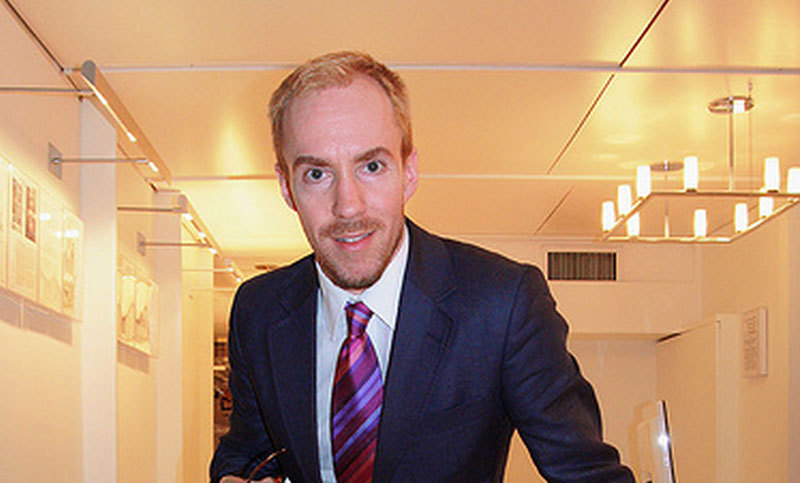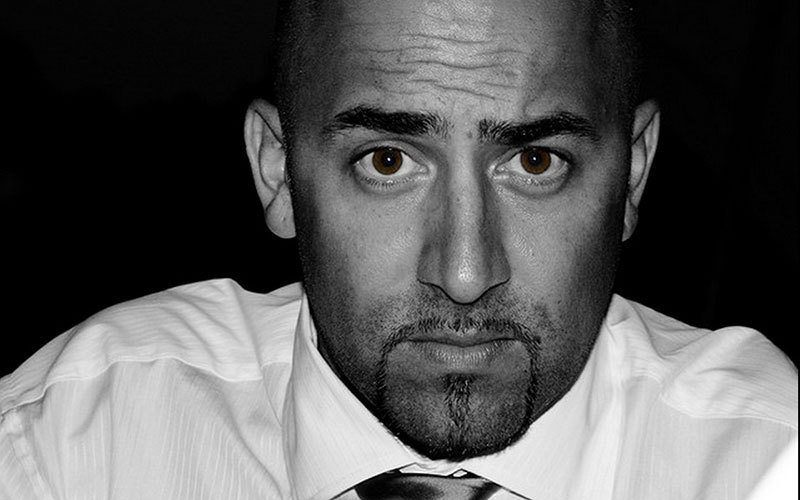How did we attract money or 13 stories of Russian investors

In search of investments, our startup to learn English online Puzzle English held a series of meetings with representatives of Russian foundations. The venture capital market in our country is still young and most investors have limited experience with a few projects, the outcome of which is not yet clear. It is noteworthy how these thirteen stories differ.
Lyrical digression
Having experienced a separation from a girl for the first time in my life, and it was in the last grade of school, I immediately found an explanation for the unfulfilled relationship - she is not interested in the Internet. I was then strongly turned on the web, and all that interested my friend - modeling clay figurines.
Therefore, I found my next passion in the network by searching in the ICQ service (there were no dating sites at that time). Having met for several months, we broke up, I analyzed the reasons again and brought out a new rule - the girl should not smoke. Well, and still has to be an internet reader. In subsequent years, I had relationships of varying lengths and, even when the parting initiative did not come from me, a new one was invariably added to my list of conclusions: she had to love sports, have a sense of humor, not get involved in football and beer, well, etc.
')
A new period has come in my life. Now I meet not with girls, but with investors. Their approach to the choice of the next project really reminded me of my search for the next girlfriend after another failure. The projects that failed with a crash, each in the portfolio does not exceed one or two (and there are not so many grandly successful ones, since it takes less time to fail than to conquer the world).
In a few years, when every investment fund has about a couple of dozen unsuccessful projects, on average, their experiences will be equal, they will become more the same. And now we see that one of the investors “girl” was a blonde and now he is looking for a brunette. And the second had a brunette, he blamed her hair color for all the misfortunes of living together and now chooses blonde or redhead.
All the names in this article are fictitious, photos are from the photobank, and in order to avoid unnecessary problems, I will add that all the stories have been sucked from the finger. You just need to read and laugh, but we may have to communicate with some of these people :)
1. Test on landings!

Our first meeting was complicated by the fact that my partner on the project was unable to get up at 4 am in order to arrive from the cottage from the far-off Moscow region in the center of Moscow by 8 am It was at such a time that Pavel “The Early Bird” Artanyan made us a meeting in a cafe, his further work week was packed with business meetings to the core.
I try to cheer myself up with an espresso cup, but at that time my body does not want to eat or drink. With red eyes and a sleepy face I tell about our project, I show presentation slides. He quickly spoke about the services that we already have, and turn to plans for the future. When talking about the service for children, Pasha is excited:
- Yes, it's cool, access to a new audience, you have to test it!
By all indications, I see that Pavel is deeply impressed by Eric Rice’s book “The Lean Startup” (the Russian name “Thrifty Startup”, if you haven’t read it - read, a chic book!). From the book, he learned that any idea should be checked at a very early stage, without trying to immediately “cut” the product. It is enough to work out the selling “Landing” page: colorfully describe a product that you still don’t have, pay up the whole thing with registration buttons or even switch to payment (depending on the monetization model being tested). And collect statistics. By the way, these statistics then still need to be correctly interpreted - this is a separate science.
I showed an estimate of the size of the audience in the “English for children” segment and showed the figures of our unit-economy on current services (how much it costs to attract users through various channels, how much money the user pays, how many leads to the site of friends and how long he uses the site).
“This is understandable, but you have a different audience,” Paul retorted, “your current services for adults! And then you think about services for children, there statistics may be quite different! Children have no money, parents pay for them. Are they willing to pay and how much? And do they need the product that you have in mind? Yes, the statistics of search queries show that the topic is relevant, but how do you know exactly what people are looking for who type “English for children”? In general, let's guys, do some different landings, throw a few breaks on the context and experiment with the suggestion: what will you sell, for what model and for what price. Show me the statistics: it is necessary that the costs of context fought back, then we will start the work!
2. Know your user!

On the cabinet door there is a venture fund logo styled as a Japanese tattoo style (well, maybe it seemed so to me). Investment analyst George waited for us behind this door, having thrown legs on a table - the habit acquired, probably, during training in America. Seeing us, he quickly throws off his legs, as if embarrassed - we are not in America yet, in Russia! Straightens fashionable pink tie - ready to meet.
Earlier, we had two meetings with George's assistants, they conduct something like a pre-selection in Starbucks. Those who pass this stage appear before the eyes of George himself in his office. He saw our documents, but asks to tell about the project from the very beginning, as if he did not know anything. Interrupting each other, we are in a hurry to tell you how cool we are, just the best startup in the world ... well, well, if not in the world, then in Russia for sure. Somehow it just happens that I begin to describe the portrait of our typical user: age, interests, purpose of learning a language. I say that we have a female audience noticeably predominant, most of them do not get along with the computer and sometimes they have to explain some simple things to them. I tell a funny story, how I helped expel the virus that “spoiled” the girl’s page on our site and I see that George’s eyes sparkled, for some reason this topic was very encouraging. Later it became clear what was the matter ...
Later, this is when we finished talking about the present and moved on to the future - about our plans to cover even the beginners. Our project historically began with services for people with a level from intermidiate. And for the initial level yet nothing. When we saw a great demand for a program for beginners, we included such an item in the development plan. This information George didn’t like very much:
- You started a dialogue with one group of users and, without completing it, decided to switch to another group! Beginners and intermediate level are completely different segments, do you want to chase after two hares? You need to know your user, know his needs and live his needs! If you want to do the project at once for everyone, trying to complete all target groups and all levels, then you will make a spherical horse in a vacuum. As a result, do not hurt anyone. The projects that are being made for everyone in the world and all the needs in the world, in fact, no one uses. He told us the sad story of a startup that smashed up all investments (read: Gosha fund investments) for a long time and qualitatively developing a super product that nobody needed. And there were so many cool features for all kinds of needs! And there are such projects that start with minimal functionality and solve a very limited task of a completely understandable target audience. They develop by constantly maintaining contact with their users, observing how they use the product and figuring out their basic needs. From sincere conversations with such users one can find out and what exactly they are annoying and what exactly they can be asked for so that they will be happy to pay! It is these needs that should dictate to us the plan for the further development of the product, and not some ridiculous analytical studies, which are worthless on the market day.
How quickly Gosha's love was conquered by telling about our close spiritual connection with the existing audience, just as quickly it was lost due to stories about plans to expand to other levels. In such a situation, it seemed to us inhuman in relation to the opponent to finish him with a story about a children's audience ... and after all this story was like the previous hero!
3. Analyze free!

Having met Anton on the streets of Moscow, you would have mistaken him for a hitchhiker or an ordinary hard worker. Never would you have noticed that behind the appearance of this man in a low-key sweatshirt and a strange cap there is a bison of venture investments. The man who lived in America and made his first investments there, when in Russia no one had ever heard of business angels, he did not smell with his nose.
Entering the cafe, in search of Anton, we went around all the tables with the men sitting with a businesslike appearance, until in the very corner there was one person who seemed to wait for no one and just enjoyed life. This was Anton.
- Guys, you are just starting, do not make this popular mistake that many make at the very beginning! Do not concentrate so much on paying users. Now you do not have a well-established product and you can make it whatever you want. Make such a resource so that people stay on it and keep coming back. And recommended it to friends.
This part of us did not cause objections, everything is clear, the obvious truths, the only question is how exactly to do it. But Anton continued:
- You do not need to enter payment for anything now at all. Let everything be free. When you enter payment immediately, you care about the return of investments and analyze only the behavior of paid users and think how to squeeze more money out of them and how to make everyone pay. So you can achieve this: the percentage of paying users will increase due to the fact that they will run free, but the quality of the product and its attractiveness to new users will suffer. It is better to have a project with a million audience and 1% paying users than a 100% paid project with a thousand audience.
Error number two: you take care of a large number of KPIs right away, blur the focus of attention. Some numbers go up, others go down, you do not understand what to do. Make a very early beta with absolutely minimal functionality and look only at one KPI: retention rate - user retention: how long people continue to use your service, how often they return, after what time on average the user stops coming. It is necessary that people stay with you and come back often - every day and even several times a day. Pay attention not to those who remain, but to those who leave. You have contacts of those who have used it for some time and stopped - find out from them what is the matter, communicate, look at their actions in the system. Analyze, determine what you need to “twist”, add something, correct and inform these people about the changes. Get them back. That's when you will have statistics that 80 out of 100 people continue to use the site in 3-4 months, then I will give you any money. It does not matter how much you ask, and no matter how many users you have in the project, even 100 people. I will estimate your project at a higher amount than a resource that already has thousands of users, but retention at the same period is 70%.
4. Analyze user cohorts!

Natalie Boatman - exclusively business woman. At a meeting with us, her phone did not stop ringing and she managed to communicate on a mobile phone while at the same time asking us questions about the presentation.
“Do you have cohort analysis?” Natalia’s investment analyst asked us in a preliminary correspondence. - “Can you comment on your market positioning against competitors?” He was interested in and conducted all subsequent correspondence exclusively in English, although the name and surname in the signature left no doubt that he was Russian. I understood the reason - it’s difficult to switch to Russian, if you communicate with foreign startups and generally all the established terminology in the sphere of your activity in English. Here you will also think how to translate correctly all these cohorts, pre-money valuation and liquidation preferences into Russian.
Therefore, marching to a personal meeting, we were preparing not to lose face and continue the dialogue in English - in the end, we pretend to teach others to English! However, Natalya spoke in Russian, and we breathed a sigh of relief. We also didn’t really train in Russian to present our presentation smoothly and smoothly, so this time there was a hitch due to unexpected changes for me in the slides that my comrade made, and I forgot about them. After each regular meeting, we made some changes in our pitch-deck, identifying the problematic places that arose in the past discussion. But in the end it turned out that we adjusted the sequence and content of the slides for our previous opponent, and the next one was interested in slightly different questions. As a result, realizing how things that interest him vary from person to person, we created one very simple pitch deck, which has not changed in the future. Moving quickly along his slides, we noticed which question “hooks” the person’s attention more strongly than the others and delved into this subject, opening up additional materials prepared in separate presentations and tables.
Yes, and what interested our interlocutor in this case? Total market for language learning. Both online and offline. Both in Russia and abroad (global expansion was even more interesting). The growth rates of these markets over the past years and forecasts for their growth over the next 5-10 years. Current market trends: training with tutors, learning via Skype, self-study. And, of course, the cohorts! Yes, cohorts or audience segments, how are we going to “divide and conquer”. What we already have and our current achievements are not interested at all.
5. Make mobile apps!

A man with eyes burning - so appeared before us Joseph Kuprin - a neatly trimmed beard, a shiny suit, a shiny tie, and the whole shiny one. The meeting was held in his office in a huge meeting room for up to 30 people. The echo of our conversation was walking through the empty corridors of the office space, frightening the secretary who was sitting alone.
Yosef came with a macbook and aipad, took an android Samsung device from his pocket, and a little later a new iPhone appeared on the table. I was wondering what other devices are hiding in the bottomless pockets of his jacket. As soon as we got to the story about our services, he wondered if they were working on the tablet and immediately got to check on the iPad in Safari. I poked the service “listening” - it works, not having calmed down on this, I went to check in Chrome. I said that there should be no differences, since ipad Chrome uses the same iOS WebKit as Safari, and differs only in external skirts, which in theory should not somehow change the performance of our services. And I thought to myself that in practice all sorts of miracles happen, but I don’t test everything when laying out every new update on the website - we don’t have a tester, and I’m really annoying to check it on all devices and browsers.
Now everything goes to the mobile - Joseph was stunned by the news. And users prefer apps. Even if there is a website, you need to make applications and make a separate application for each service. Do you have plans for mobile apps? We showed our plan, with the specified list of services, for each of which we plan to work out a mobile application. Yosef was in trend and knew that now it was fashionable to allocate any little bit shabby service into a separate application, the plan approved.
6. Look for a marketer!

Only outwardly Mefistokl Dandelions looked so rustic granddadies, on a festive occasion put on a suit. Very quickly, he delved into the entire structure of our project, not losing a single employee out of attention, and it seems even remembering all the names.
You have no marketer in your team! - he summarized. In a startup from the very beginning there should be a marketer, without it you can do good services for a very long time, about which no one will know. Are you going to search for it by ad? Well this is ridiculous! Work on the ads are looking only for idlers and parasites who are not capable of doing something of their own! Why do you need such an employee? Such a marketer, of course, will be able to do his dismal work in a mature company, say, after round B, when your first marketer, who has launched the project with you, has gone to make his own interest. And in your case, uh, heh, go to the bottom with him.
7. Look for experts!

John and Jack - our most profile potential investors. If before that we met only with representatives of funds that were either of a broad profile or worked, including in the Education segment (and according to this criterion, we were, as it were, thematic), then John and Jack have their own network of language schools in Russia and the CIS . In their language centers they teach different languages, but in fact the money is being shoveled in English, and all other languages smoke quietly on the sidelines.
For many years, their business was exclusively offline and the guys expanded due to the opening of new language centers, but the rapid growth in the field of online education made them look in this direction. Yes, the cost of classes in an offline school (and they are usually sold in annual courses) is almost two orders of magnitude higher than the cost of online courses for self-study. But the online audience is also huge and grows with temapas of 20-25% per year.
“There are no problems with a lack of digital content,” said the old men, sipping champagne (we met in a noisy bar and it got on my nerves a little, but what to do, I didn’t choose this place). - This problem was a few years ago, but now the content is dofiga, you cannot master it in your whole life, but people still don’t learn the language. They were overwhelmed with their content, but they could not get out from under him, they fell asleep with their heads. People do not understand what to do, what to undertake, how to master it all, and lose their motivation.
There was wi-fi here, we looked at major English-speaking sites for learning English (this is a separate topic for astonishment). We watched our Puzzle English - together we ran through all the services, watched video tutorials with Anton and Lena, trained in grammar exercises, practiced listening, used phrases in the commercials by ear, added words to a personal dictionary. We praised our design and I was convinced that online these guys do not understand much. Our archaic design did not scold only lazy, working on a new one.
Okay, they said, the services are good. And it only strengthened them in the thought that there is now a lot of good content and services, even too much, and the attention of users jumps somewhere in the meadows and fields. The battle for this attention is just beginning, you need to decide how to win it and preferably right here and now, at the bar, you just have to finish the champagne.
- It is necessary to involve the experience of language experts - such a conclusion was made by John, and Jack just nodded affirmatively (he drank more than John and was quite in a suitable condition for nodding).
“You have no language experts, really cool experts,” said John, Jack nodded again. - But we have them. In fact, we have so many of them that it is even difficult to choose who should do this. Our experts can work out a special online learning system for you by transferring all your offline teaching experience to online. And you will program all this in a quick way, you have experience online, in the development of all these services here and we will cross it with our expertise.
“And it would be nice to attract Dmitry Petrov,” Jack said suddenly, he had finished his second glass. John stared at him in surprise. Yes, yes, of course, it's all about Dmitry Petrov, we all understood, we urgently need Dmitry Petrov! So on horseback!
8. Change the engine!

It was a friendly consultation, rather than a conversation with a potential investor. Mitya Strawberry is a friend of my friend's friends, works as a secret clerk in a large fund with a state share. We were introduced to the reception on the occasion of the birthday of our mutual friend, and I decided, combining business with pleasure, to get his advice. He saw many startups coming with applications to the fund and promised to give an assessment of our undertaking through the eyes of the foundation.
Someone had a tablet at hand, the mobile Internet worked surprisingly well for Moscow reality, and I was able to show our presentation and website.
Mitya admired our new Serials service on the move. He said that we can close all other services and score on everything we planned for the future, because all other ideas are not very intelligible and have a dubious future. They are difficult to “sell” to the investor, because they do not look like a clear product. But “Serials” is an understandable and complete product, self-sufficient, with a clear target audience, you need to write a business plan and get money for it.
The conversation turned to the insides of the site and, having learned that we use WordPress as our CMS, Mitya became very worried about our future. After all, "WordPress" is so often hacked, it is unreliable. And after all, this is a blogging engine, how can we make a serious project on it - we will rest on the problem of scaling, everything will start to slow down and fail, we will have to rewrite everything from scratch on some serious platform.
I must say that I often encounter such a prejudice about WordPress, and always these people know little about it. At best, they set once to indulge, but they did not try to understand its internal architecture and the entire ecosystem that had developed around it. If I am in a mood of indulgence, then I ask, in this case, which platforms they themselves would suggest and ask for a comparative analysis.I tell that Wordpress is used by millions of sites and there are high-loaded among them ( TechCrunch , Mashable and even Zuckerberg will call you , LOL). The fact that out of the box you can get chic plugins that optimize performance by orders of magnitude. That for free or for ridiculous money, you can use Security modules, the development of which would cost you kilobaxes on your own. And that, ultimately, as in any other system, science is not in the choice of a special “magic” thing, but in the professionalism of those who serve it.
For a bootstrapping startup, the most important task is to quickly launch at least something with minimal costs, and for this purpose, WordPress is a great option. You can spend a lot of time carefully starting and developing a cool engine, and you’ll run out of money before you start developing the main functionality.
9. Change your niche!

- You have the largest competitor in the market! - The brown eyes of the Seeds Without Profit radiated fear. We also felt uneasy.
- What are you going to oppose them? They have millions of users already know everything about them! Vaughn, their shaggy beast distributes his cutlets everywhere, even sneaking into my cell phone, - Simon unlocked his iPhone and squandered several screens to show us the animal that settled there. We have not seen anything sinister in him - a sweet creature.
“But we are familiar with Pavel Durov, he is a vegetarian and he knows how to deal with meat patties, he will help us,” my comrade joked. I wanted to smile at this unexpected joke, but the fear in the eyes of our interlocutor turned into horror. Even the short hairs of the elegant beard stirred on his face. I hiccupped.
“Find a free niche where there is no major player,” he concluded. Think about a website with language tutors online. So that even in Skype it was not necessary to go - I paid for the course on the site and talk with different nytyvami, professional and not so. The main thing is that it is really inexpensive, so that you can immediately buy many hours in bulk and communicate on any topic. So I would pay for it myself - I want to practice spoken English and not to talk to Russians. The main thing is that his pronunciation was native, and not that he was a certified teacher. The candidates are full - all of America, England and Australia, there are a lot of idlers looking for work online, and pull them out. I give you an idea!
Arriving home, I was able to google the information about why the name of Pavel Durov instilled such horror in Bezprebudko. He made his first investments in early 2007 in a social network project, a year after the start, the project was covered up, and Simon chose to blame Vkontakte for all failures.
10. Count the sales!

The oil and gas fund “Our Future”, the managing partner of the fund, Gleb Tarasevich, chops off the go:
- Guys, I don’t even know how you came to me for an audience, some of our workers didn’t see it. You are not our profile or our size. Understand, we are the salt of the Russian land ... then he hesitated ... swing. GHM We are investing from a million, well, now if you even asked for half a million greens, I would have thought. And you and this much. Yes, and nano-technology in your project does not smell, you can teach nano-English, using nano-levels of brain tissue? Not?It is a pity ...
Well, okay, let's count, since you came, it’s not to chase you right away. Show me the money! Maybe we will find where a million of you are buried there. A quick glance at the presentation of the project immediately draws our diamond - “Soaps”. Yes, somewhere we have already heard it, but now it is time for specific calculations. A series of questions follows: how much are the copyright to the content, how long are they purchased, under what conditions, how does the extension work, how much does user involvement cost, how much does it pay, market volumes, how much content can we process per month, how does this process scale, what are the costs of payroll costs, regular and irregular costs ...
Voila, 10 minutes and everything counted! No, it does not work a million. Even half a million does not come out. You guys are not our client, but we have partner funds that work with little things like you. I will send them your documents, bye!
11. You do not need money!

It seems that everyone in the community already knows that it is impossible to evaluate a startup by current profits, and no one knows how much a startup should cost. Nevertheless, there are investors who immediately begin to dance from this figure. So Vasily Shishoff with Nikifor Maslov from the well-known in narrow circles of the “Shish with the Oil” foundation, which is already gaining the third portfolio of assets, could not resist and gave us an estimate of the value of our project by its annual income using generous multiplier 8. They explained that for the well-established business multiplier used 2-3, and for our case - a case of active growth at an early stage, you can grab all 8.
The cost of the project obtained by this method turned out to be an order of magnitude smaller than the pre-money valuation declared by us, which in turn is also calculated in a simple way - if we ask X rubles for a share in Y%, then the cost of 100% of the company = X \ Y%.
I inquired whether, acting according to this method of evaluation, they asked to pay extra money to the cashier, accepting teams with a negative current economy to their foundation. On this question, Nikifor silently got up and left the office, demonstrating that he had more important things to do than to communicate with ignoramuses like us. The glasses on my companion’s nose were blurred by the exhalation of surprise and crawled over his forehead.
It's funny, but as soon as we were left alone with Vasily, he immediately became kinder, smiled and began to give us friendly advice. I had a feeling that he was not interested in our project from a business point of view, he was very much in doubt in our competencies, but as an old experienced fighter, he was ready to help the salaga.
“Do you really need so much money, guys?” - he asked. - I think you do not need as much as you ask. You counted here for 2 years ahead and want to take a lot of money at once. And in the conditions when your startups are so small and seedy, this money is equal to the value of the whole company, you will have to give everything. It is more profitable for you to take small pieces, often a little. In the short run, calculate how much money you need for the most necessary things, for what should be done yesterday. You will give a small share for this, and it will be easier to find an investor. During this time, your company will grow in size and price, and then for the amount you need for the second stage, you will give a smaller share than you would give for that money right away. Clear?
Everything was very clear, even too clear ...
12. Take the money!

When we arrived, Kesha Grachinsky was dozing at a table. I coughed.
“Kesha,” he startled, and stretched out his hand. Our mutual friends said that he does not like to be called Innokentiy and only Kesh needs to contact him. Well, okay, Kesha, so Kesha.
Throughout our conversation, Kesh was asleep, occasionally opening one or the other eye. The questions he asked were extremely unexpected. For the most part, they almost did not overlap with the questions that we were asked at other meetings. He was not interested in the language learning market, the audience, the success of our project now and development plans, market positioning, the current economy and other Labuda. But he found out whether each of us has children (even including all employees at an outsourcing), what languages we can speak, how we communicate within the team, what stressful situations we had and what we would like to do if we had there was no this project. Then the conversation went in a circle and about the same questions began to be repeated in a somewhat modified form. Very similar to the psychological test,which determines the degree of truthfulness of your answers. In my youth I passed such a test on a computer while applying for a very important job.
The most unexpected was the continuation of this story - after a couple of weeks, Kesh contacted us and offered money. During these two weeks we did not have personal meetings, only the exchange of project documents and correspondence. There were funds that we met many times, they tortured us with thousands of different questions, trying to predict our future - they still predict and reflect. Keshe had one personal conversation to make a decision - this is a real professional!
However, now we ourselves are pondering over the question of Vasi Shishoff - should we take money from someone? During the period of circulation in the funds, we slowly dragged the project out of unprofitability into self-sufficiency and now we don’t need money so urgently. Of course, while the money is only enough for the most necessary - to maintain current services. Investment money would allow to invest in marketing, take the necessary employees, and start working on new services. But, we remember the proverb about free cheese and we understand that investments come along with the interests of the people who are behind this money. And with these interests, one must learn to coexist effectively.
13. We will follow you ...

Well, as the last story number 13 I will tell you about the optimal, in my opinion, strategy of “observing the caravan”. We met with the foundation “ Plyushkin and sons" repeatedly. It seemed that the most difficult line was overcome: according to the representative of the fund, every day they consider up to 50 applications from around the world, applications come through already established channels. Of the 50 applications, 40 are eliminated immediately and silently, the remaining 10 are asked for some additional information, on the basis of which a decision is made about a personal meeting or a Skype conversation (if there are no representatives in Moscow). 1-2 projects out of 50 come to this stage and we are among them. After a well-attended meeting, we asked for status, did not respond to anything concrete. After a couple of weeks, we decided that our project was not interested. After 3 months, we suddenly received a letter asking to restore access to Google Analytics (I deleted their guest access a few days before), wrote,that are still interested in our project and asked a series of new questions. We answered, waited a week or two, and again forgot. A few months later the story repeated again ...
The strategy of monitoring a moving caravan is based on the fact that at the beginning of the journey the risks of project failure are highest. The longer the project exists independently, the more chances it has for survival and the clearer what can be expected from it. Obviously, with such a strategy, part of profitable options may “float away” to another fund. But if you do it en masse, trying to take young projects to the monitors of your radar early on and carefully watch with binoculars how their caravans cross the hot desert, then you have enough analytical data to choose the most resistant camels.
Summary
The method of determining the prospects of a startup among our investors at the moment resembles fortune telling on the coffee grounds. Everyone has their own subjective ideas about key evaluation criteria and often these ideas are opposite. Something like medieval alchemy: the goal is clear (to synthesize gold), but the methods for achieving the goal are very vague and all sorts of assumptions are made: from using mercury to searching for a philosopher's stone.
If you collect from different people all the requirements that (in their opinion) the start-up team must meet, then with full confidence we can say that none of the existing applicants will satisfy this list.
If you look at the history of those individual successes that are now heard, then you can see that none of them also met all these requirements, which did not prevent the achievement of success.
After a few years, investment alchemy should evolve into modern chemistry: based on the accumulated experience of successful and unsuccessful projects, exact science will arise - analysts will know what data to take as input for calculating the value of a startup and what characteristics are white noise and can be ignored. What risks need to be insured and what is not at all risks. As a result, on average, a start-up on the market will receive close evaluations, and therefore close in terms of the offer. Competition among investors will move into the area of competence: the best offer to a young entrepreneur will be competence and experience in the niche that the project is aimed at.
Source: https://habr.com/ru/post/219955/
All Articles